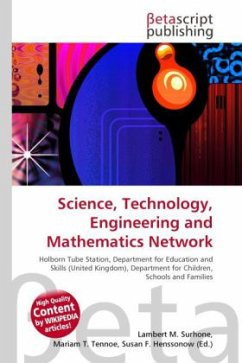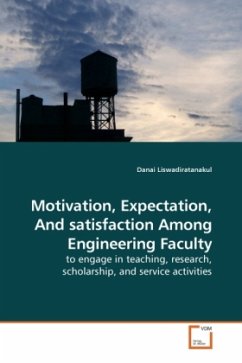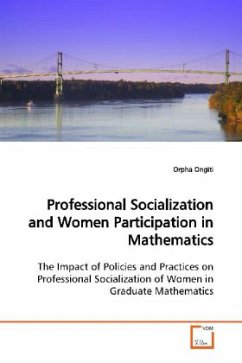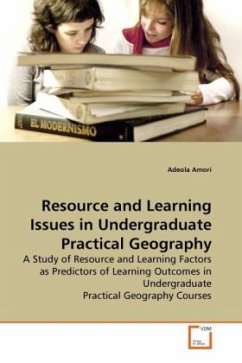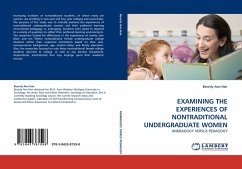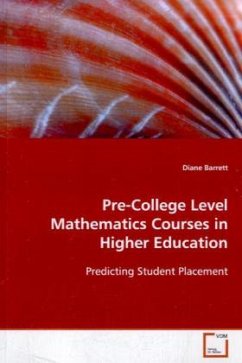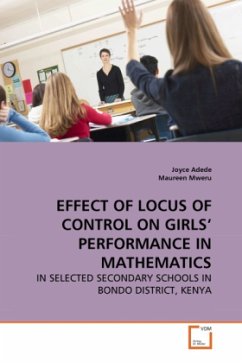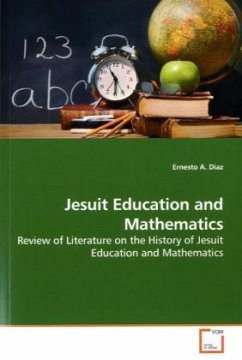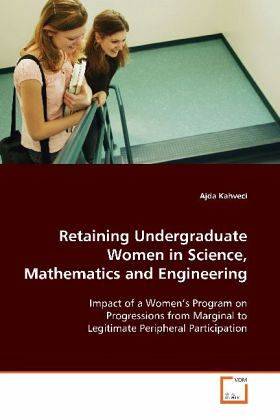
Retaining Undergraduate Women in Science, Mathematics and Engineering
Impact of a Women s Program on Progressions from Marginal to Legitimate Peripheral Participation
Versandkostenfrei!
Versandfertig in 6-10 Tagen
45,99 €
inkl. MwSt.

PAYBACK Punkte
23 °P sammeln!
Women have historically been discouraged fromparticipating in the science, mathematics, andengineering (SM&E) fields. This book reports on theanalysis of a support network, the Program for Womenin Science, Engineering and Mathematics (PWISEM),founded by a university in the U.S. Thisliving-learning community aimed to encourageprimarily first-year women students. The researchfocused on PWISEM factors involved in motivating andsupporting women in their intended SM&E majors.Situated learning and the cultural-historicalactivity theory served as the theoretical lenses. Theresearch design was dominan...
Women have historically been discouraged from
participating in the science, mathematics, and
engineering (SM&E) fields. This book reports on the
analysis of a support network, the Program for Women
in Science, Engineering and Mathematics (PWISEM),
founded by a university in the U.S. This
living-learning community aimed to encourage
primarily first-year women students. The research
focused on PWISEM factors involved in motivating and
supporting women in their intended SM&E majors.
Situated learning and the cultural-historical
activity theory served as the theoretical lenses. The
research design was dominant-less dominant, with
qualitative and quantitative approaches,
respectively. Findings underline key success factors,
and significantly higher number of PWISEM women than
non-PWISEM women and men deciding for a SM&E major.
Implications emphasize that based on feminist theory,
within such community contexts there can be both
explicit and implicit ways of transformation. The
work proposes ways of approaching the issue both in
theory and practice, and should be useful to science
educators, scientists, or anyone else committed to
promoting an all-inclusive science and science education.
participating in the science, mathematics, and
engineering (SM&E) fields. This book reports on the
analysis of a support network, the Program for Women
in Science, Engineering and Mathematics (PWISEM),
founded by a university in the U.S. This
living-learning community aimed to encourage
primarily first-year women students. The research
focused on PWISEM factors involved in motivating and
supporting women in their intended SM&E majors.
Situated learning and the cultural-historical
activity theory served as the theoretical lenses. The
research design was dominant-less dominant, with
qualitative and quantitative approaches,
respectively. Findings underline key success factors,
and significantly higher number of PWISEM women than
non-PWISEM women and men deciding for a SM&E major.
Implications emphasize that based on feminist theory,
within such community contexts there can be both
explicit and implicit ways of transformation. The
work proposes ways of approaching the issue both in
theory and practice, and should be useful to science
educators, scientists, or anyone else committed to
promoting an all-inclusive science and science education.



